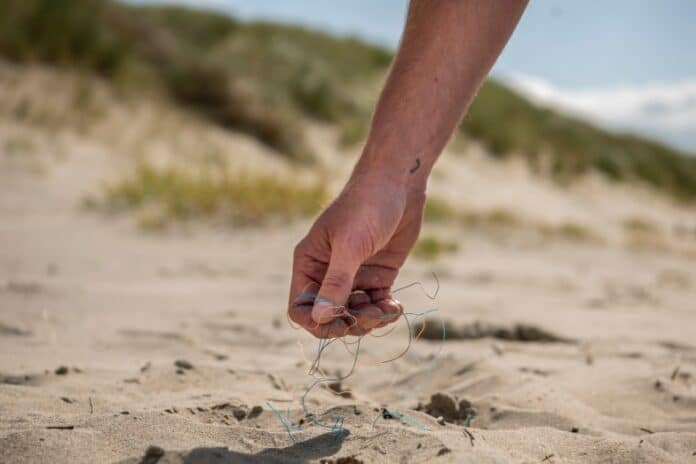This summer, environmental NGO The North Sea Foundation organised the eighth edition of its annual beach clean-up campaign. From August 1 until August 15, almost 2,500 volunteers cleaned up the entire North Sea coast in the Netherlands. This year, for the first time, the organisation joined the UN-EU Beach Clean-up campaign.
“A clean and healthy North Sea requires an international approach,” says Sebastiaan Verkade, Project Leader of the Boskalis Beach Clean-up Tour at The North Sea Foundation. “We can only tackle the waste problem properly if we work together with other Member States. After all, the North Sea does not belong solely to the Netherlands and waste can flow all over the world,” he adds.
A quarter less waste
Over the past ten years, the Dutch North Sea beaches have witnessed a significant downward trend in waste – a quarter less – according to a survey carried out by the foundation on behalf of Rijkswaterstaat, part of the Dutch Ministry of Infrastructure and Water Management.
“It is going in the right direction, but we are not there yet: we find an average of 282 waste items per 100 metres,” says Mr Verkade. “That is why our Boskalis Beach Clean-up Tour is still sorely needed.”
Cleaning up waste, creating awareness and calling for a bottom-up approach to combat waste in the sea are the main objectives of the beach clean-up campaign. The organisation believes it is important to reach as many people as possible and to tell them not only about the waste problem, but also about existing solutions.
The North Sea Foundation works together with other environmental organisations, companies and initiatives. Over the past eight editions, almost 15,000 participants have cleaned up more than 90,000 kilos of waste. “Over the years, we have come across the most strange and special things on the North Sea beaches: toilet seats, a negative pregnancy test and even part of a Second World War aircraft,” says Mr Verkade.
Cigarette butts
Every edition, The North Sea Foundation draws attention to one particular item of waste. In 2021, the focus was on cigarette butts. A cigarette butt can poison up to eight litres of seawater and contains a lot of plastic.
As well as cigarette butts, this year’s participants discovered old food packaging from various countries. “A crisp packet from 1994 was found and even one from 1980. The plastic has withstood the test of time and was now on our beautiful North Sea beaches,” Mr Verkade laments.
According to Mr Verkade, there is increasing enthusiasm for cleaning up beaches. “It is not only a nice day at the beach, participants also contribute directly to a clean beach and a healthy North Sea. They come from all over the country and are of all ages.”
Major differences along the coastline
There are big differences between tourist and non-tourist beaches. Tourist beaches are tidied more regularly by municipalities in the summer months. That is why there are fewer large items of waste there, but a lot of small waste, and in particular cigarette butts. There are also more crisp and sweet packets than non-touristy beaches, the foundation says.
Ocean currents and weather conditions also influence the presence of waste. In nature reserve ‘De Kwade Hoek’, a great deal of waste washes ashore or ends up there via rivers. Large heavy pieces of waste often remain for a long time.
Future
When asked how they see the future, Mr Verkade is determined: “The less waste we find every year, the better. Evidently, for us it is all about a clean beach.”
“We want the Boskalis Beach Clean-up Tour to eventually no longer be necessary by preventing waste from ending up in the sea in the first place,” he concludes.
What can you do?
- Visit decadeonrestoration.org and follow the #GenerationRestoration movement.
- Participate in the #EUBeachCleanup or other #ActNow activities




